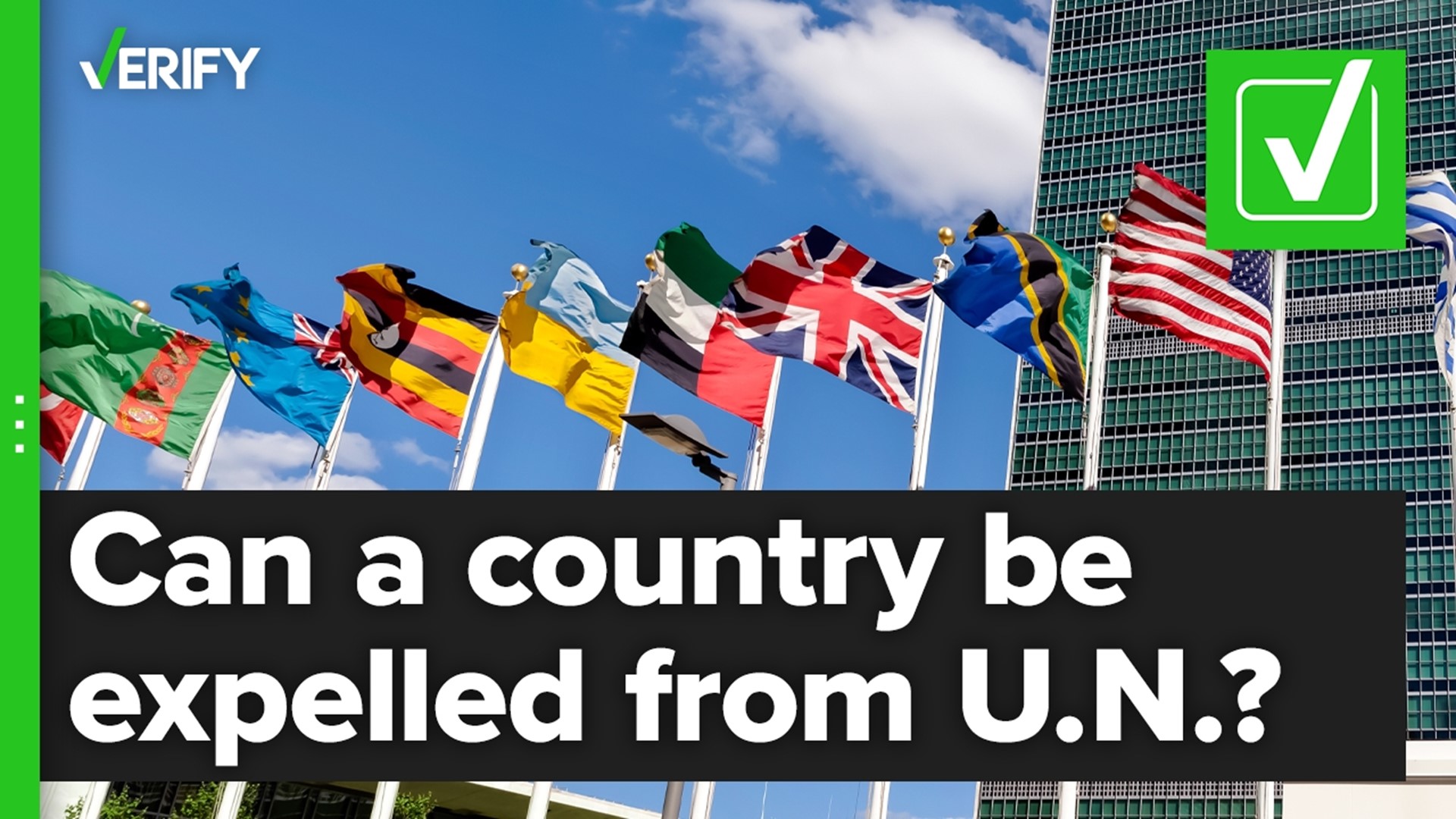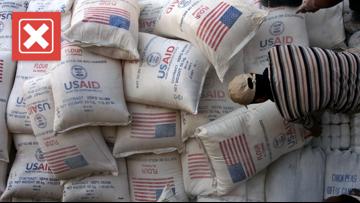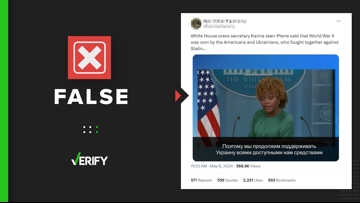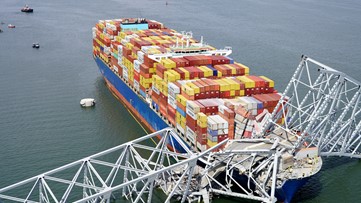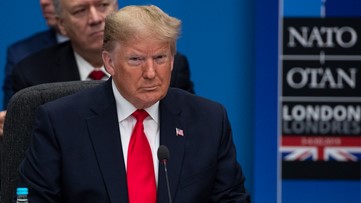Russia’s membership status in the United Nations (U.N.) has become a talking point on social media amid the country’s ongoing attack on Ukraine.
A journalist for Ukrainian newspaper Kyiv Independent pointed out in a viral tweet that Russia is still a member of the U.N. Security Council. Since then, other Twitter users (here and here) have called for Russia’s removal from the U.N. entirely over its actions in Ukraine.
THE QUESTION
Can a country be expelled from the United Nations?
THE SOURCES
- United Nations Charter
- United Nations in Vienna
- Richard Gowan, U.N. director of the International Crisis Group
- Andrew MacLeod, visiting professor in the Department of War Studies at King’s College London
- Blog of the European Journal of International Law
THE ANSWER
Yes, the U.N. General Assembly can expel a member country, but it's never happened. Russia’s removal from the U.N. is unlikely, experts say.
WHAT WE FOUND
The United Nations (U.N.), founded in 1945, is an international organization aimed at providing a place for countries to “discuss common problems and find shared solutions that benefit all of humanity.” It is currently made up of 193 member states.
Under Article 5, a member may be suspended “from the exercise of rights and privileges of membership by the General Assembly upon the recommendation of the Security Council.” This can take place if the Security Council has taken “preventive or enforcement action.”
Article 6 outlines the process for expulsion from the international organization. If a member has “persistently violated the principles” of the U.N. Charter, the General Assembly can expel it upon recommendation by the Security Council.
Though it’s possible for a country to be expelled from the U.N., it’s never happened before, according to the U.N. Office at Vienna and Andrew MacLeod, visiting professor in the Department of War Studies at King’s College London.
So what does all of this mean for Russia’s membership in the U.N.?
Russia is one of 15 members of the U.N. Security Council, which was created to maintain international peace and security, and one of five permanent members. Russia’s permanent membership status on the council means the country has veto power and can block any resolution. The four other permanent members are the United States, United Kingdom, France and China.
Since Russia has a veto on the Security Council, the council couldn’t recommend Russia’s removal from the U.N. unless Russia agreed or abstained from voting.
“The Security Council has to recommend that the country be expelled. That recommendation then goes to the U.N. General Assembly, which includes…basically all the countries in the world to make a final decision,” said Richard Gowan, U.N. director of the International Crisis Group. “The glitch here is that Russia can use its veto to block the Security Council recommending its own expulsion. So Russia essentially holds the power to kill off any effort to throw it out of the U.N.”
MacLeod says “there is no mechanism to remove a permanent member of the Security Council written into the U.N. Charter.”
Despite Russia’s procedural influence, some Ukrainians have argued that a technicality might void the country’s position on the Security Council. Article 23 of the U.N. Charter says the USSR, not Russia, is a permanent member of the Security Council.
However, there are some problems with this argument, according to Gowan. When the Soviet Union dissolved in 1991, Ukraine and other former Soviet states acknowledged that Russia would hold on to the seat, he said.
“There's also a principle in international law and diplomacy that if something is not challenged for three decades, and if it is accepted as sort of correct just through the practice of a body like the U.N., then it has standing,” he added.
So it’s unlikely that Russia will be expelled from the U.N.
But could the country face suspension from the U.N. for its actions in Ukraine? According to experts, that probably won’t happen either, because of Russia's veto power.
Article 5 of the U.N. Charter – which allows for the suspension of a member – doesn’t “provide a basis for Russia’s suspension from the U.N.” because the Security Council hasn’t taken “preventive or enforcement action” against the country, Rebecca Barber, a Ph.D. candidate at the University of Queensland School of Law, wrote in a post for the European Journal of International Law’s online blog. Preventive or enforcement action from the Security Council can include sanctions, mediation services and even military action. Again, this is unlikely due to Russia’s role on the Security Council.
The U.N. General Assembly has effectively suspended a state on two occasions: Cambodia in 1997 and South Africa in 1974, according to Barber. Some countries tried to expel South Africa from the U.N., but a number of western countries used their veto power to block that move, Gowan said.
There are still ways to limit Russia's presence in the U.N. beyond the Security Council. On April 7, the General Assembly voted 93-24 to suspend Russia from the Human Rights Council. Russia is the second country to have its membership rights stripped at the Human Rights Council.
The Associated Press contributed to this report.
More from VERIFY: No, the U.N. doesn't have the authority to charge people with war crimes
